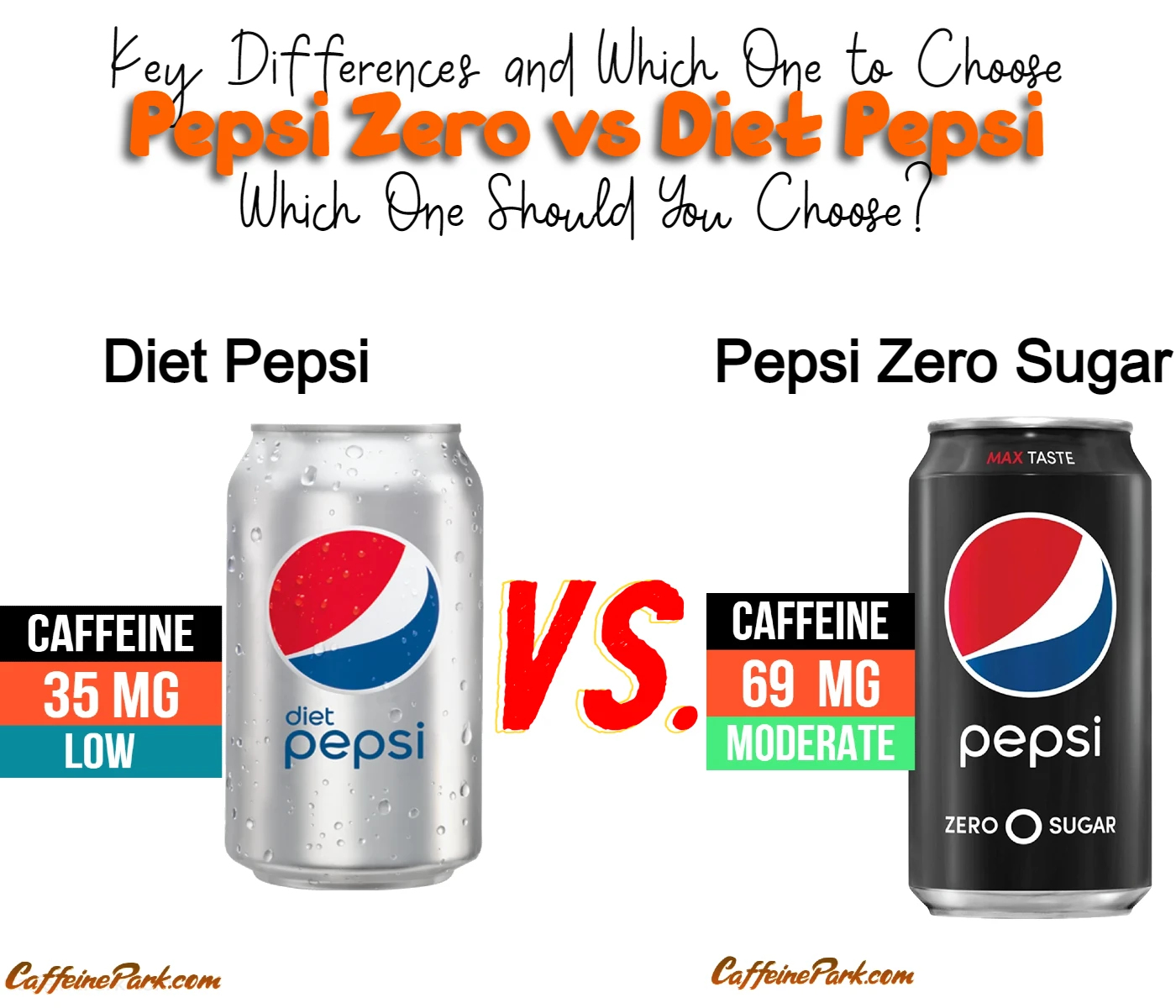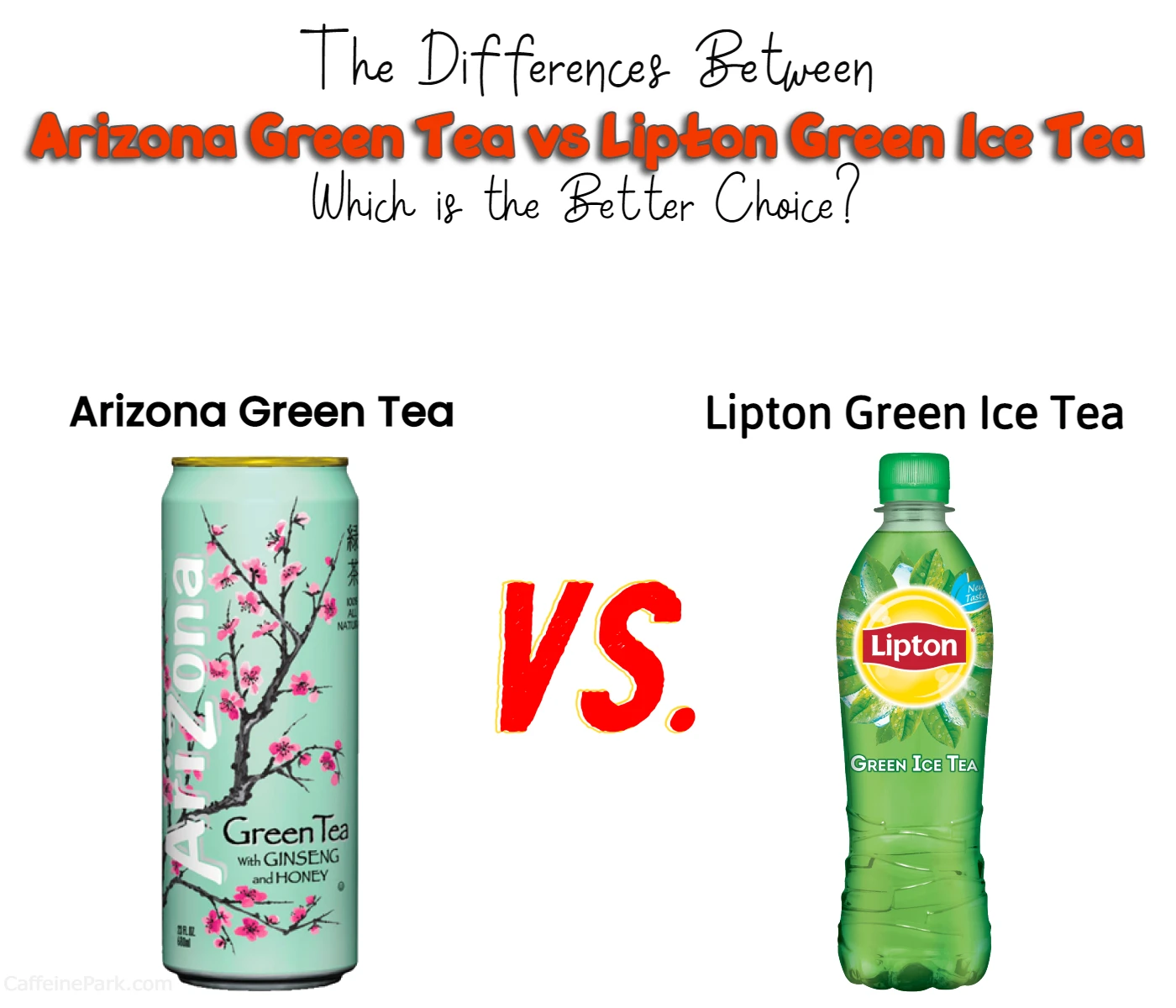
Hey there, coffee or black tea? Which one is your go-to drink to start the day? These two beverages are the most widely consumed drinks in the world, but they are quite different in many ways. In this blog post, we will explore the differences between coffee and black tea to help you make an informed decision about which one to choose.
One of the most obvious differences between coffee and black tea is their taste and aroma. Coffee is generally bitter and has a strong, robust flavor, while black tea is more mellow and has a floral and sweet taste. Another difference between these two beverages is their preparation. Coffee is typically brewed by passing hot water through roasted and ground coffee beans, while black tea is made by steeping tea leaves in hot water.
Beyond taste and preparation, there are also differences in the caffeine content and health benefits of coffee and black tea. Coffee generally contains more caffeine than black tea, making it a popular choice for those looking for an energy boost. However, black tea is rich in antioxidants and has been linked to a range of health benefits, including improved heart health and reduced risk of certain cancers.
So, whether you prefer the bold taste of coffee or the soothing flavor of black tea, understanding the differences between these two beverages can help you make an informed decision about which one to choose. Keep reading to learn more about the differences between coffee and black tea, and to discover which one might be the best fit for your lifestyle and taste preferences.
Here’s a table summarizing some key points of comparison between coffee and black tea:
| Aspect | Coffee | Black Tea |
|---|---|---|
| Origin | Native to Africa; cultivated globally | Native to East Asia; cultivated globally |
| Caffeine Content | Higher caffeine content, around 95 mg per 8-ounce cup | Moderate caffeine content, around 30-60 mg per 8-ounce cup |
| Flavor Profile | Bold, robust, with variations of bitterness and acidity | Nuanced, complex, with variations of malty, brisk, or delicate flavors |
| Preparation Methods | Drip brewing, French press, espresso, cold brew | Boiling water steeping, various tea infusers and pots |
| Culinary Versatility | Used in desserts, sauces, marinades, beverage enhancements | Used in sauces, poaching, baked goods, tea-infused cocktails |
| Health Benefits | Reduced risk of type 2 diabetes, Parkinson’s disease, liver diseases, potential heart health benefits | Gentle energy boost, potential cardiovascular benefits, cancer-fighting properties, improved gut health |
| Cultural Significance | Symbol of intellectual exchange, social gatherings in coffeehouses, Middle Eastern coffee ceremonies | Tea ceremonies in China and Japan, afternoon tea in British culture |
| Specialty Options | Espresso, cappuccino, latte, Americano, cold brew | Earl Grey, chai, Assam breakfast, Darjeeling First Flush, Russian Caravan |
As you can see, coffee and black tea have a range of differences, from their taste and preparation to their caffeine content and health benefits. Choosing between these two beverages ultimately comes down to personal preference, but understanding the differences can help you make an informed decision about which one is right for you.
Difference between Coffee and Black tea
Source and preparation
Black tea comes from the Camellia sinensis plant, which is native to China and India. The leaves are picked, withered, rolled, oxidized, and dried to produce the final product. On the other hand, coffee is made from roasted coffee beans that come from the Coffea plant, which is mainly grown in countries such as Brazil, Colombia, and Ethiopia. The beans are roasted, ground, and brewed to produce coffee.
Caffeine Content: Energizing Factors
Caffeine is a key component of both coffee and black tea, providing that much-needed energy boost to help us kickstart our day or stay alert in the afternoon. However, the caffeine content in these beverages differs, and it’s essential to understand their potential effects.
Coffee’s Caffeine Kick
Coffee is renowned for its higher caffeine content compared to black tea. On average, an 8-ounce cup of brewed coffee contains about 95 milligrams of caffeine, although this can vary depending on factors such as the coffee bean variety, the brewing method, and the serving size. For those seeking a bolder caffeine punch, espresso-based drinks like lattes and cappuccinos pack a more concentrated dose.
The caffeine in coffee stimulates the central nervous system, promoting alertness and temporarily reducing fatigue. It can also enhance athletic performance, increase metabolism, and improve mental focus. However, it’s important to be mindful of individual caffeine sensitivities, as excessive consumption can lead to jitters, increased heart rate, and disrupted sleep patterns.
Black Tea’s Moderate Stimulant
While black tea contains caffeine, it generally offers a milder dose compared to coffee. An 8-ounce cup of black tea typically contains around 47 milligrams of caffeine, again depending on factors like the tea variety, brewing time, and the strength of the brew. Additionally, the presence of L-theanine in black tea can help balance the stimulant effects of caffeine, promoting a state of relaxed alertness.
Black tea’s moderate caffeine content makes it an appealing choice for those who enjoy the taste and ritual of tea but prefer a less intense energy boost. It can provide a gentle pick-me-up without the potential side effects associated with higher caffeine intake.
To give you a clearer picture of the caffeine content in coffee and black tea, here’s a comparison:
| Caffeine Content (8-ounce cup) | |
|---|---|
| Coffee | Approximately 95 milligrams |
| Black Tea | Approximately 47 milligrams |
The Aroma and Flavor Experience
One of the first things that entices us about coffee and black tea is their captivating aroma. The moment you open a bag of freshly roasted coffee beans, you’re greeted by a rich and intoxicating scent. The aroma of coffee can vary greatly depending on the bean origin and the roast level, offering a wide range of fragrances from fruity and floral to chocolatey and nutty.
On the other hand, black tea boasts a more subtle but equally delightful aroma. The leaves of black tea exude a fragrant blend of earthiness, maltiness, and sometimes even floral notes. The brewing process fills the air with a comforting aroma that is sure to awaken your senses.
When it comes to flavor, coffee, and black tea have distinct profiles that cater to different taste preferences. Coffee is known for its bold and robust flavor, often accompanied by hints of bitterness and acidity. The taste can vary depending on factors such as the coffee bean variety, the roast level, and the brewing method. Some coffee enthusiasts enjoy the nuanced flavors of specialty coffees, with notes of caramel, berries, or even spices.
Black tea, on the other hand, offers a more nuanced and complex flavor experience. The taste of black tea can range from malty and brisk to smooth and delicate, depending on the specific tea variety and the brewing technique. Some black teas have distinct fruity or floral undertones, while others may have a subtle smokiness. The depth and character of black tea flavors make it a favorite among tea aficionados.
To give you a clearer picture, let’s compare the aroma and flavor of coffee and black tea side by side in the following table:
| Aroma | Flavor | |
|---|---|---|
| Coffee | Rich, varied, and enticing | Bold, robust, with hints of bitterness and acidity |
| Black Tea | Subtle, fragrant, and comforting | Nuanced, complex, with variations of malty, brisk, or delicate flavors |
Health Benefits and Wellness Effects
Beyond their delightful taste, both coffee and black tea offer a range of potential health benefits that may surprise you. Let’s take a closer look at how these beverages can positively impact your well-being.
Coffee’s Health Perks
Coffee is widely celebrated for its ability to provide an energy boost and increase alertness, thanks to its high caffeine content. This stimulant effect can enhance cognitive function and improve focus, making it a popular choice for starting the day or beating the afternoon slump. However, it’s worth noting that caffeine affects individuals differently, and moderation is key to avoiding potential side effects like jitters or sleep disturbances.
In addition to its energizing properties, coffee is rich in antioxidants, such as chlorogenic acid and quinides, which have been linked to various health benefits. Research suggests that coffee consumption may reduce the risk of developing certain conditions, including type 2 diabetes, Parkinson’s disease, and liver diseases like cirrhosis and liver cancer. Moreover, the antioxidants in coffee may contribute to overall heart health and potentially lower the risk of stroke.
But let’s not forget the importance of balance. While moderate coffee consumption can be part of a healthy lifestyle, excessive intake of added sugars and creamers can negate some of its benefits. It’s essential to consider your personal tolerance to caffeine and make choices that align with your individual health goals.
Black Tea’s Wellness Wonders
Black tea, like coffee, contains caffeine, although generally in lower amounts. This makes it a milder alternative for those who prefer a more subtle energy boost. The combination of caffeine and an amino acid called L-theanine found in black tea can promote a state of relaxed alertness, which may contribute to improved focus and concentration.
Black tea is also a rich source of antioxidants, particularly polyphenols, which have been associated with numerous health benefits. Research suggests that regular consumption of black tea may have a positive impact on heart health, as it can help lower blood pressure and reduce the risk of cardiovascular diseases. Furthermore, the polyphenols in black tea have been linked to potential cancer-fighting properties and improved gut health.
It’s important to note that while black tea offers health perks, it may not be suitable for everyone. Individuals sensitive to caffeine or those with certain medical conditions should consult their healthcare provider to determine the appropriate level of black tea consumption.
To summarize the health benefits of coffee and black tea, take a look at the following table:
| Health Benefits | |
|---|---|
| Coffee | Energy boost, improved focus, reduced risk of type 2 diabetes, Parkinson’s disease, and liver diseases, potential heart health benefits |
| Black Tea | Gentle energy boost, improved focus, potential cardiovascular benefits, cancer-fighting properties, improved gut health |
Cultural Significance and Rituals
Coffee and black tea have both played significant roles in the social and cultural fabric of societies around the globe. Let’s explore their unique cultural significance and the rituals associated with these beloved beverages.
Coffee: A Global Affair
Coffee has a rich history dating back centuries and has become deeply embedded in various cultures worldwide. From the bustling coffeehouses of Europe to the traditional Ethiopian coffee ceremonies, the social aspect of coffee consumption has always been a central focus.
Coffeehouses have long served as meeting places for intellectuals, artists, and individuals seeking lively discussions and a sense of community. Think of the famous cafes of Paris or the Viennese coffeehouse culture, where coffee was not just a drink but a symbol of intellectual exchange and creative inspiration.
In many Middle Eastern countries, coffee has its own elaborate ceremony. Guests are welcomed with the fragrance of freshly roasted and ground coffee beans, which are then brewed in a specially designed pot called a dallah. The resulting coffee is poured into small cups known as finjans, and the host serves it while engaging in conversations and storytelling.
Coffee’s cultural impact extends to the Americas as well, where countries like Brazil and Colombia have become synonymous with coffee production. The cultivation, harvesting, and processing of coffee beans provide livelihoods for countless individuals, contributing to the economic and cultural fabric of these regions.
Black Tea: Steeped in Tradition
Black tea, too, has a rich history and a distinct cultural significance that varies across different countries and regions. It has long been associated with tea ceremonies and rituals that reflect a deep appreciation for the art of brewing and serving tea.
In China, the birthplace of tea, the Gongfu Cha ceremony is a revered tradition. It involves precise movements and a series of rituals that aim to extract the fullest flavor from the tea leaves. The tea is brewed in small teapots and poured into tiny cups, allowing participants to savor the aroma and taste of the tea.
In Japan, the traditional tea ceremony known as Chanoyu embodies principles of harmony, respect, and tranquility. The ceremony involves the careful preparation and presentation of matcha, a powdered green tea. Participants engage in a meditative experience, focusing on the aesthetics and the peacefulness of the moment.
In Britishculture, black tea holds a special place. Afternoon tea, with its quintessential combination of black tea, finger sandwiches, scones, and pastries, has become an iconic cultural ritual. It is a time for relaxation, conversation, and indulgence, often accompanied by fine china and elegant table settings.
Furthermore, black tea has been instrumental in shaping the history of trade and colonization. The British Empire’s pursuit of tea from China led to the establishment of tea plantations in India and Sri Lanka (formerly Ceylon), forever altering the global tea industry. Today, these regions are renowned for their high-quality black teas, such as Assam and Darjeeling in India and Ceylon tea from Sri Lanka.
To capture the cultural significance and rituals associated with coffee and black tea, let’s explore the following table:
| Cultural Significance | Rituals | |
|---|---|---|
| Coffee | Symbol of intellectual exchange, social gatherings in coffeehouses, elaborate Middle Eastern coffee ceremonies | Ethiopian coffee ceremonies, European café culture |
| Black Tea | Tea ceremonies in China and Japan, afternoon tea in British culture | Gongfu Cha ceremony in China, Chanoyu tea ceremony in Japan, traditional British afternoon tea |
Preparation Methods: Brewing Artistry
Both coffee and black tea offer a variety of preparation methods, each with its unique charm and techniques. Let’s take a look at how these beverages are brewed and the equipment commonly used.
Art of Coffee Brewing
Coffee brewing methods can range from simple and convenient to intricate and time-consuming, depending on the desired flavor profile and the equipment available. Here are a few popular coffee brewing methods:
- Drip Brewing: This method involves pouring hot water over coffee grounds held in a paper or metal filter. Automatic drip coffee machines and pour-over setups like the Hario V60 and Chemex are commonly used for drip brewing.
- French Press: The French press method involves steeping coarsely ground coffee in hot water and then pressing a plunger to separate the grounds from the liquid. It results in a full-bodied brew with rich flavors and slight sediment.
- Espresso: Espresso is a concentrated form of coffee made by forcing hot water through finely-ground coffee under high pressure. Espresso machines, whether manual or automatic, are used to create this intense and aromatic beverage.
- Cold Brew: Cold brew is a slow and gentle brewing process where coffee grounds steep in cold or room temperature water for an extended period, usually overnight. The resulting brew is smooth, less acidic, and often served chilled.
Time-Honored Tea Brewing
When it comes to brewing black tea, the process focuses on achieving the perfect infusion of flavors. While the specific brewing instructions may vary depending on the type of black tea, the basic steps for preparing a delightful cup remain consistent. Here’s a general guide to brewing black tea:
- Boiling Water: Heat fresh, filtered water to the appropriate temperature for the specific black tea variety. As a general rule, use water just below boiling point, around 200-212°F (93-100°C).
- Measuring Tea: Use a teaspoon or an infuser to measure the desired quantity of loose tea leaves. A typical recommendation is approximately 1 teaspoon per 8-ounce cup, but you can adjust based on personal preference.
- Steeping Time: Place the tea leaves in a teapot or a tea infuser and pour the hot water over them. Let the tea steep for 3-5 minutes, or follow the instructions provided with the particular black tea variety to achieve the desired strength.
- Straining: After steeping, remove the tea leaves by straining the liquid into a teacup. If using tea bags, simply remove the bag from the cup.
- Enjoying the Moment: Savor the aroma and flavors of the brewed black tea as you indulge in a moment of relaxation and tranquility.
Both coffee and black tea brewing methods offer a chance for creativity and experimentation, allowing you to tailor the brewing process to your taste preferences and desired strength.
Culinary Versatility: Beyond the Cup
Coffee and black tea aren’t limited to being enjoyed in a traditional liquid form. They also add depth and complexity to a wide range of culinary creations, enhancing both sweet and savory dishes. Let’s explore the versatility of these beverages in the kitchen.
Coffee’s Culinary Charm
Coffee’s rich and bold flavors make it a fantastic ingredient in various culinary delights. Here are some popular ways coffee can be used in cooking and baking:
- Desserts: Coffee brings depth and intensity to desserts like tiramisu, coffee-flavored cakes, and brownies. Incorporating brewed coffee or finely ground coffee into batters and frostings creates a delightful mocha twist.
- Sauces and Marinades: Coffee-based sauces and marinades add a unique richness to meat and poultry dishes. The natural acidity in coffee helps tenderize the protein while imparting a complex flavor profile.
- Beverage Enhancements: Coffee can be used as a flavoring agent in beverages like smoothies, milkshakes, and cocktails. A shot of espresso can elevate the taste of creamy beverages or be the star ingredient in refreshing summer concoctions.
- Rub or Seasoning: Mixing finely ground coffee with spices, herbs, and other seasonings creates a bold rub for meats, adding a smoky and earthy element to grilled or roasted dishes.
Black Tea’s Culinary Delights
Black tea’s subtle and nuanced flavors lend themselves well to a variety of culinary creations. Here are a few ways black tea can be incorporated into your cooking adventures:
- Tea-Infused Sauces: Infusing black tea into sauces and dressings adds a distinctive flavor profile. From tea-infused reduction sauces for meats to tea vinaigrettes for salads, black tea can provide a unique touch.
- Poaching Liquid: Using black tea as a poaching liquid for fruits, such as pears or peaches, infuses them with delicate tea flavors and imparts a natural sweetness.
- Baked Goods: Incorporating black tea leaves or brewed tea into baked goods like cookies, scones, or cakes adds a subtle tea essence. The floral and earthy notes of black tea create a lovely balance in these treats.
- Tea-Infused Cocktails: Black tea can serve as a base for refreshing and aromatic cocktails. Mixingit with spirits, fruits, and other ingredients creates unique and flavorful beverages that are perfect for special occasions or casual gatherings.
By exploring the culinary possibilities of coffee and black tea, you can unleash your creativity in the kitchen and discover new dimensions of taste and aroma.
Serving styles
Coffee and black tea are served differently. Coffee is usually served hot or cold, and it’s common to add cream, sugar, or other flavorings to it. Black tea is also served hot or cold, but it’s typically consumed without any additional ingredients. However, some people may add milk, honey, or lemon to their black tea.
Availability
Coffee is more widely available than black tea, and it’s more commonly consumed in the United States and many other countries. However, black tea is more prevalent in countries such as China, India, and the United Kingdom.
Effects on the body
Coffee and black tea may have different effects on the body. Coffee may increase alertness, reduce fatigue, and improve mood. However, excessive consumption of coffee may cause jitters, anxiety, and other negative side effects. Black tea, on the other hand, may help promote relaxation and reduce stress levels. However, it may also contain tannins, which can interfere with the absorption of certain nutrients.
Caffeine sensitivity
Some people may be more sensitive to caffeine than others. If you’re sensitive to caffeine, you may want to avoid or limit your consumption of coffee or black tea. Decaffeinated versions of both beverages are also available.
Cost
The cost of coffee and black tea can vary depending on the quality, brand, and location. Generally, coffee tends to be more expensive than black tea. However, premium varieties of black tea can be quite pricey.
Brewing methods
Both coffee and black tea have different brewing methods. Coffee is typically brewed using a coffee maker or French press. In contrast, black tea is often brewed using loose tea leaves, tea bags, or a tea infuser. The brewing time and water temperature also differ between the two beverages.
Health risks
While coffee and black tea have various health benefits, excessive consumption of both can also have health risks. Drinking too much coffee can increase the risk of heart disease, high blood pressure, and anxiety. Similarly, drinking too much black tea can lead to digestive problems, insomnia, and headaches. It’s essential to consume both beverages in moderation and consult a healthcare professional if you have any concerns.
Varieties
Both coffee and black tea have numerous varieties and flavors. Coffee comes in various roasts, such as light, medium, and dark, and different blends, such as Arabica and Robusta. Black tea also has a wide range of flavors, such as Earl Grey, Darjeeling, and Assam, and different grades, such as first flush and second flush.
Environmental impact
Both coffee and black tea have an environmental impact. Coffee production requires large amounts of water and pesticides, which can have negative effects on the environment. Similarly, tea production can lead to deforestation, soil erosion, and water pollution. It’s essential to choose sustainably sourced coffee and black tea to reduce your environmental impact.
Caffeine tolerance
Finally, caffeine tolerance also plays a significant role in determining whether you prefer coffee or black tea. Some people may find that coffee is too strong or too stimulating, while others may find black tea too mild. It’s essential to listen to your body and choose the beverage that works best for you.
Specialty Options: Beyond the Basics
Both coffee and black tea offer a world of specialty options that cater to different taste preferences and elevate the drinking experience. Let’s explore some of these specialty options within each category.
Coffee Specialties
- Espresso: Espresso is the foundation for many coffee-based beverages. It is a concentrated shot of coffee brewed under high pressure, resulting in a dense and intense flavor. Espresso forms the base of popular drinks like cappuccinos, lattes, and macchiatos.
- Cappuccino: A cappuccino consists of equal parts espresso, steamed milk, and frothed milk. It is often topped with a sprinkle of cocoa or cinnamon for added flavor and aesthetics.
- Latte: A latte is made with espresso and a larger quantity of steamed milk, creating a creamy and velvety texture. It can be enjoyed as is or flavored with syrups like vanilla, caramel, or hazelnut.
- Americano: An Americano is made by diluting espresso with hot water. It provides a similar strength to drip coffee but with a different flavor profile.
- Cold Brew: Cold brew is made by steeping coarsely ground coffee in cold water for an extended period, typically overnight. The resulting brew is smooth, less acidic, and often served over ice.
Black Tea Specialties
- Earl Grey: Earl Grey is a black tea flavored with oil extracted from the rind of bergamot oranges, giving it a distinctive citrusy aroma. It is often enjoyed with a touch of milk or lemon.
- Chai: Chai is a spiced black tea beverage that originated in India. It is made by simmering black tea leaves with a mixture of spices such as cinnamon, cardamom, ginger, cloves, and black pepper. Chai can be enjoyed plain or with milk and sweetener.
- Assam Breakfast: Assam breakfast tea is a robust and full-bodied black tea, known for its strong flavor and malty notes. It is often enjoyed with milk and sugar, making it an ideal choice for a hearty morning cup.
- Darjeeling First Flush: Darjeeling First Flush tea refers to the first plucking of the season, producing delicate and floral teas with a light body. It is often cherished for its unique characteristics and is best enjoyed without milk.
- Russian Caravan: Russian Caravan is a blend of black teas with a smoky flavor profile. It harkens back to the days when teas were transported from China to Russia via camel caravans
Conclusion
In conclusion, the difference between black tea and coffee is more than just their taste and aroma. They differ in their source, preparation, caffeine content, health benefits, serving styles, availability, effects on the body, caffeine sensitivity, cost, brewing methods, health risks, varieties, cultural significance, and environmental impact. Whether you prefer coffee or black tea, make sure to enjoy them in moderation and choose sustainably sourced products to reduce your impact on the environment.
Alternative to Coffee and Black tea
If you’re looking for an alternative to coffee and black tea, there are plenty of other beverages that can provide a tasty and refreshing pick-me-up. Here are a few options to consider:
- Green Tea: Green tea is a great alternative to black tea and coffee, as it contains less caffeine and is packed with antioxidants. It has a delicate, grassy flavor that many people find appealing, and it’s also been shown to have a range of health benefits, such as improving brain function and reducing the risk of certain diseases.
- Herbal Tea: Herbal teas are another great option if you’re looking for a caffeine-free alternative. They come in a wide variety of flavors, such as peppermint, chamomile, and hibiscus, and can be enjoyed hot or cold. Herbal teas have been used for centuries for their medicinal properties, and many of them have calming effects that can help you relax and unwind.
- Matcha: Matcha is a type of green tea that is made by grinding tea leaves into a fine powder. It has a strong, earthy flavor and contains more caffeine than regular green tea. Matcha is also packed with antioxidants and has been shown to have a range of health benefits, such as improving cognitive function and boosting metabolism.
- Yerba Mate: Yerba mate is a traditional South American drink that is made by steeping the leaves of the yerba mate plant in hot water. It has a slightly bitter taste and contains about as much caffeine as a cup of coffee. Yerba mate is rich in antioxidants and has been shown to have a range of health benefits, such as improving mental clarity and reducing inflammation.
So, if you’re looking to switch up your daily beverage routine, give one of these alternatives to coffee and black tea a try. With their unique flavors and health benefits, they may just become your new go-to drink.
FAQs
Coffee generally has more caffeine than black tea. A typical 8-ounce cup of coffee contains around 95 milligrams of caffeine, while an 8-ounce cup of black tea contains around 47 milligrams of caffeine. However, the exact amount of caffeine in each beverage can vary depending on the type of coffee or tea and the brewing method.
Both coffee and black tea have potential health benefits, such as reducing the risk of certain diseases and improving cognitive function. However, excessive consumption of either beverage can also have health risks. It’s important to consume both beverages in moderation and consult a healthcare professional if you have any concerns.
The cost of coffee and black tea can vary depending on the quality, variety, and source of the beverage. Generally, high-quality coffee is more expensive than high-quality black tea, but this may not always be the case.
Coffee is generally more popular in Western countries, while black tea is more popular in Asian and British cultures. However, the popularity of each beverage can also vary within regions and cultures.
While it’s possible to mix coffee and black tea, the taste and aroma of the resulting beverage may not be appealing to everyone. It’s best to experiment with small amounts and adjust the ratios to your taste preferences.
Read More:
Contents
- Difference between Coffee and Black tea
- Source and preparation
- Caffeine Content: Energizing Factors
- The Aroma and Flavor Experience
- Health Benefits and Wellness Effects
- Cultural Significance and Rituals
- Preparation Methods: Brewing Artistry
- Culinary Versatility: Beyond the Cup
- Serving styles
- Availability
- Effects on the body
- Caffeine sensitivity
- Cost
- Brewing methods
- Health risks
- Varieties
- Environmental impact
- Caffeine tolerance
- Specialty Options: Beyond the Basics
- Conclusion
- Alternative to Coffee and Black tea
- FAQs





